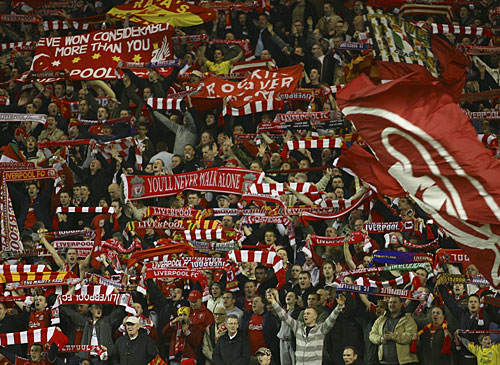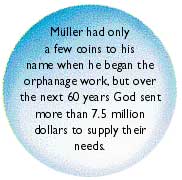
Boxing films seem to be popular hits both in the box office as well as in the movie academy. We have the Rocky series I-V, where the original Rocky movie won 3 oscars. "
Cinderella Man" (released in 2005) dramatizes a boxer who inspired millions during the Great Depression in the 1930s. "
Raging Bull" starring Robert De Niro won an oscar for Best Actor. "
Million Dollar Baby" released in 2004, won 4 oscars. There is a certain theme that flows across each of these boxing films. A hero. In Rocky, the hero Rocky Balboa, was a symbol of hope and victory and many people identify themselves with the character, who went through hardship and yet became a winner through sheer hard knocks of life.
Cinderella Man is a memorable movie that is comforting to the heart, that there is hope even when the chips are down. This hero theme has recently been challenged. Two films serve as examples. In
Raging Bull, the main character, Jake LaMotta was depicted as a hero on the outside but a 'raging bull' on his inside, as an affront to the hero-emphasis of most boxing films. It shows us that behind the external hero boxer image lies a very hideous character. The unheroic-heroic theme was given a balanced treatment in
Million Dollar BabyIn
Million Dollar Baby, the film begins and portrays a heroine in the making, and ends tragically in the death of the 'heroine' boxer, whose entire body was paralysed after a championship fight. It is essentially a million dollar heroine, who eventually becomes like a baby, who needs to depend on others for all her needs. Hero movies normally is more palatable to the heart if it ends on a good and happy ending, just like the "
and they lived happily ever after" ending we hear when we were little children. I appreciate movies like
Million Dollar Baby for it tells us that amidst our constant struggle for excellence, we need to spare a thought for the humanness in us. Some of us will die at a ripe old age. Some of us will die due to sudden illnesses, and yet some will succumb and become another statistic to the top sicknesses in many societies, like cancer, heart disease and diabetes. What about the impact of sudden death? What about a hero in making abruptly dies, and along with it the potential for greatness and riches? How then do we want to be remembered in life?
The
Million Dollar Baby is a clever title. The heroine, Maggie Fitzgerald (played by Hilary Swank), had great potential and a talent that is spurred with persistence and utter perseverance. After delivering first round knockout blows at many fights, no one wanted to put their fighter in her class to face her in any competition. So Frank Dunn (her manager/trainer played by Clint Eastwood) moved her a class higher to Welterweight championships. Her opponent, a then current welterweight champion unsportingly delivered a fatal blow to her after the bell, and she suffered a major concussion when she fell and hit her stool. From then on, she became a patient at a rehabilitation center, where all her physical activities have to be done for her. Even her breathing has to be helped with machines. After losing reason to live, she tried several times to end her life by biting her tongue. Her immediate family seemed more interested in getting her to transfer her assets to them rather than caring for her. The only people to stand by her is her trainer, Frank Dunn and Eddie Dupris (Morgan Freeman). It is a stirring movie and makes me reflect upon the themes below.
(1) The Fight for Excellence- All of us possess potential one way or another. Maggie was a rising star, and a heroine in the making. Her family was showered with monetary blessings from her winnings, and more importantly, Margaret is doing what she feels is her life: to be a successful boxer, with the best trainer she knows. Isn't there a hero in the making in all of us, as we struggle to reach our own expectations of what we want of ourselves? In our struggle for excellence, are we doing it because of WHO WE ARE or are we doing it merely because OTHERS ARE DOING IT?
(2) "Mo Chúisle" (meaning 'my pulse')- By her wearing a green boxing robe, she had many in the Irish community supporting her wherever she goes. This simple connection with culture, even though unintended, shows us the power of linkage. Pride and heroics are never far apart. More so, if one is fighting not only for oneself, but when one's win is representative of the win for a community, the effect gets multiplied many fold.
(3) The Ending of the Story- The story ended with Frank doing the most humane thing he knew, against all opposition. Frank removed Maggie from her life support system, which apparently seem to sustain her suffering rather than to give her hope and comfort. This ending is very sad, and sadder still, is when her own family members whom she loved, turned out to be selfish individuals who are more concerned with their money and narcissistic pursuits. For example, they visited her rehab center in California only after a week's fling at the theme parks and attractions. In the hospital, they are more interested in transferring her financial assets to them, rather than transfusing family love and warmth to her. Endings like this do not leave a nice feeling at the end of the movie. Isn't that true in life for some of us, where we cannot really predict when we will die? Oftentimes, people in hospice ministry knows how to prepare for death better than many of us.
(4) Always Protect Yourself- Maggie's greatest regret is forgetting to keep her guard up, especially during her fight. It takes a moment of unguarded carelessness, to fall into an eternity of suffering. As I think about this, and about the modern society's drive towards individualistic pursuits and individualistic ideals, I shudder. There is a right and wrong way of pursuing excellence. Protecting ourselves cannot be simply brushed off as plain selfishness. There is a place to take care of our physical selves. If we care for ourselves in order to be able to be a responsible member of society, that is legitimate care. But if our pursuit of personal ideals comes at the price of another person's downfall, that is another thing altogether. We have heard of the saying: "It's all a zero sum game." Given a choice, I would rather not play such a game. However, sometimes we are not given a choice, then what do we do?
It is a struggle. What I do know from my interactions with various people, is that the higher we go in the corporate ladder, especially in the narcissistic pursuit of selfish ambitions, there will be more "zero-sum games" we will need to play.
ks
 Went to THINK coffee shop today to do some studying. Have not been there for more than a year. They have good wireless internet connection. One of the interesting features they have is the loo of free expression. On the four walls of the lavatory are blackboards that anyone can write their thoughts and ideas. A tray of chalks are conveniently located for anyone to use. Usually, toilet graffiti scribbled with nonsense and useless messages with sexual overtones. Not this cafe. Interestingly, looking at the quality of the written sentences, I figure out that due to the high percentage of tertiary students, the kind of messages do have a more 'scholarly' or 'philosophical' whining. Two quotes were particularly interesting. It is about the value of friends and relationships which we ought to take note of.
Went to THINK coffee shop today to do some studying. Have not been there for more than a year. They have good wireless internet connection. One of the interesting features they have is the loo of free expression. On the four walls of the lavatory are blackboards that anyone can write their thoughts and ideas. A tray of chalks are conveniently located for anyone to use. Usually, toilet graffiti scribbled with nonsense and useless messages with sexual overtones. Not this cafe. Interestingly, looking at the quality of the written sentences, I figure out that due to the high percentage of tertiary students, the kind of messages do have a more 'scholarly' or 'philosophical' whining. Two quotes were particularly interesting. It is about the value of friends and relationships which we ought to take note of.






